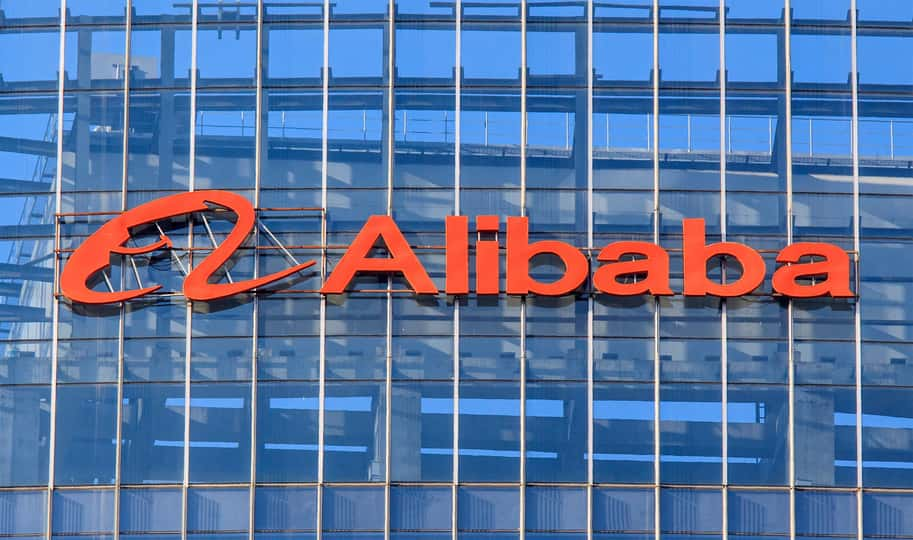Alibaba Group Holding Ltd (BABA - Get Rating) is a leading platform for global wholesale trade, operating mainly in China, and is widely viewed as the “Amazon of China.” The company is grouped into three core businesses primarily: Alibaba, Taobao, and Tmall. BABA also generates huge revenues from its various affiliates such as Cainiao, its logistic affiliate, and Alibaba Cloud.
BABA’s stock hit its all-time high at the end of October but has declined 14.7% since. The company suffered a setback when the IPO of its financial affiliate Ant Group was cancelled last month. The IPO was expected raise an estimated $37 billion and boost Ant’s market value to more than $300 billion. Both the Shanghai and Hong Kong stock exchanges suspended the offering due to questions around Ant Group’s disclosures.
Moreover, China’s State Administration for Market Regulation (SAMR) has drafted new antitrust rules aimed at the country’s largest tech companies such as BABA to prevent monopolistic tactics. As a result, it may be difficult for BABA to leverage its huge user database to generate personalized ads.
There is a looming threat that Chinese stocks will be delisted in the United States if they are unable to meet strict auditing standards within three years. The uncertain outlook and other factors have led our proprietary rating system to rate BABA stock as “Neutral.”
Here is how our proprietary POWR Ratings system evaluates BABA:
Trade Grade: C
BABA is currently trading at lower than its 50-day and 200-day moving averages of $275.23 and $264.36, respectively. This indicates that the stock is in a downtrend. Its stock’s 5.8% loss over the past three months reflects short-term bearishness.
BABA’s total revenue increased 30.3% year-over-year to $22.8 billion for the quarter ended September 2020 primarily driven by growth in its core commerce segment. The company’s core commerce revenue increased 29.3% year-over-year to $19.3 billion. Revenue from the cloud computing segment increased 60.4% year-over-year to $2.2 billion. However, net income declined 62.9% year-over-year to $3.9 billion.
Joint research published by Bain & Company and Tmall Luxury Division on December 16 reported that growth in the mainland China luxury market is expected to increase 48% by year’s end. On November 5, BABA announced a global strategic partnership with Richemont to provide luxury brands with better access to the Chinese market and to the digitization of the global luxury industry.
On December 3, the company announced that its cloud computing segment, Alibaba cloud, had revamped its hybrid cloud strategy to make it more compatible and scalable with its recently upgraded Hybrid Cloud Partner Program. This is aimed at helping small and medium enterprises (SMEs)transform digitally. BABA also signed a Memorandum of Understanding (MoU) with BMW on October 26th regarding a strategic partnership.
Buy & Hold Grade: C
In terms of proximity to its 52-week high, which is a key factor that our Buy & Hold Grade considers, BABA is positioned unfavorably. The stock is currently trading 17.9% below its all-time high of $319.32, which it hit on October 27th.
The company’s net revenue has grown at a CAGR of 43.7% over the past three years, while its EBITDA has increased at a CAGR of 19.8% over the same time. Also, diluted EPS has increased at a CAGR of 27.3% in the past three years. This can be attributed to the company’s strategic partnerships over the years and expansion in various domains like cloud computing and logistics in addition to its main retail business.
Peer Grade: B
BABA is currently ranked #21 of 115 stocks in the China group. Other popular stocks in the China group are JD.com, Inc. (JD - Get Rating), Baidu, Inc. (BIDU - Get Rating), and GreenTree Hospitality Group Ltd. (GHG - Get Rating).
JD and BIDU outran BABA, gaining 136.1% and 54.6%, respectively, over the past year, while GHG returned 18.4% over the same period.
Industry Rank: D
The China group is ranked #102 of the 123 StockNews.com industries. While China is the only major economy to grow amid the global COVID-19 pandemic, the Chinese government’s new draft rules aimed at curbing monopolistic behavior among China’s largest internet firms have proved detrimental to some well-known companies in the China group.
Moreover, the United States’ House of Representatives passed legislation on December 2 that could prevent some Chinese companies from listing their shares on U.S. exchanges absent their adherence to U.S. auditing standards. The Holding Foreign Companies Accountable Act is expected to be signed by President Donald Trump before he leaves office.
Overall POWR Rating: C (Neutral)
Despite recording strong growth in its core commerce and cloud segment, BABA is rated “Neutral” due to regulatory concerns rom in China and the United States and other challenges it is facing, as determined by the four components of our overall POWR Rating.
Bottom Line
In the near-term, BABA may not return to its all-time high because of operational challenges presented by the suspension of the IPO of its financial affiliate, tightening regulations regarding antitrust being considered by the Chinese government and concerns over a new United States’ bill that threatens to delist Chinese stocks from American exchanges.
Want More Great Investing Ideas?
9 “MUST OWN” Growth Stocks for 2021
Where is the Santa Claus Stock Rally?
5 WINNING Stocks Chart Patterns
BABA shares were trading at $261.19 per share on Thursday morning, down $0.70 (-0.27%). Year-to-date, BABA has gained 23.14%, versus a 17.18% rise in the benchmark S&P 500 index during the same period.
About the Author: Manisha Chatterjee

Since she was young, Manisha has had a strong interest in the stock market. She majored in Economics in college and has a passion for writing, which has led to her career as a research analyst. More...
More Resources for the Stocks in this Article
| Ticker | POWR Rating | Industry Rank | Rank in Industry |
| BABA | Get Rating | Get Rating | Get Rating |
| JD | Get Rating | Get Rating | Get Rating |
| BIDU | Get Rating | Get Rating | Get Rating |
| GHG | Get Rating | Get Rating | Get Rating |






